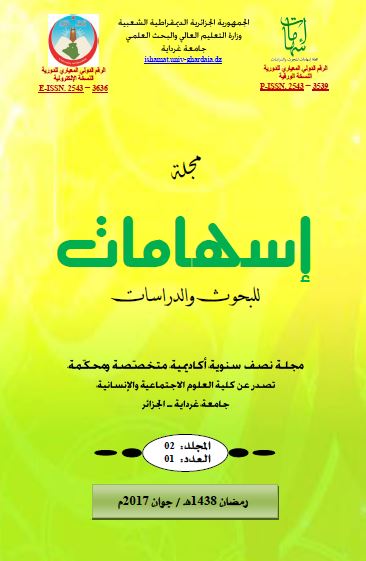فاعلية برنامج الإرشاد المعرفي- السلوكي في خفض الاستخدام غير الآمن للإنترنت لدى عينة من طلبة المدارس الحكومية الثانوية في محافظة طولكرم
Keywords:
الإرشاد المعرفي، الإرشاد السلوكي، الإنترنت، برنامج إرشادي، استخدام غير آمن. cognitive-behavioral therapy, counselling, Internet, Heuristic program, The use of unsafe.Abstract
الملخص:
هدفت الدراسة إلى التحقق من فاعلية برنامج إرشادي معرفي- سلوكي في خفض الاستخدام غير الآمن للإنترنت لدى عينة من طلبة المدارس الحكومية الثانوية في محافظة طولكرم، وتكونت عيّنة الدراسة من (30) طالباً، منهم (15) في المجموعة التجريبية، و(15) في المجموعة الضابطة، ممن كانت درجاتهم مرتفعة وفوق درجة القطع على مقياس الاستخدام غير الآمن للإنترنت. لقد طبق البرنامج على مجموعة تجريبية في اثنتي عشرة جلسة، مدة كلّ منها (45- 60) دقيقة وبواقع جلستين أسبوعياً. وطبق مقياس الدراسة على المجموعتين التجريبية والضابطة قبل وبعد انتهاء البرنامج الإرشادي، وكذلك بعد مرور فترة متابعة مدتها شهرين من انتهاء البرنامج. وقد أظهرت نتائج الدراسة وجود فروق ذات دلالة إحصائية على مقياس الاستخدام غير الآمن للانترنت، مما يشير إلى فاعلية البرنامج الإرشادي المطبق بعد المتابعة، ومن أهم التوصيات التي أوصت بها الدراسة: اعتماد إستراتيجية معرفية- سلوكية ومناسبة مع الاستخدام غير الآمن للإنترنت، والتعرف على دورها من خلال مقارنتها بأساليب إرشادية أخرى.
كلمات مفتاحيه: الإرشاد المعرفي، الإرشاد السلوكي، الإنترنت، برنامج إرشادي، استخدام غير آمن.
Abstract
This study aimed to determine the effectiveness of cognitive-behavioral therapy program in reducing unsafe Internet use among a sample of secondary Ertah school students in Tulkarm. The study sample consisted of 30 students, of whom 15 in the empirical group and 15 in the control group, whose grades were above the cut-off score on the unsafe Internet use scale. The program was implemented on the empirical group in twelve sessions, two sessions a week, each session lasted 45-60 minutes.
The study measurement was applied on the empirical group and control group before and after the therapy program, and also after a two-month follow-up period. The study found out that there were statistically significant differences in terms of the unsafe Internet use, indicating the effectiveness of the therapy program, which was applied after the follow-up. The study recommended the need to adopt an appropriate cognitive-behavioral strategy to safeguard the Internet usage, and also the need to identify this strategy’s effectiveness through its comparison with other educational methods.
Keywords: cognitive-behavioral therapy, counselling, Internet, Heuristic program, The use of unsafe.

